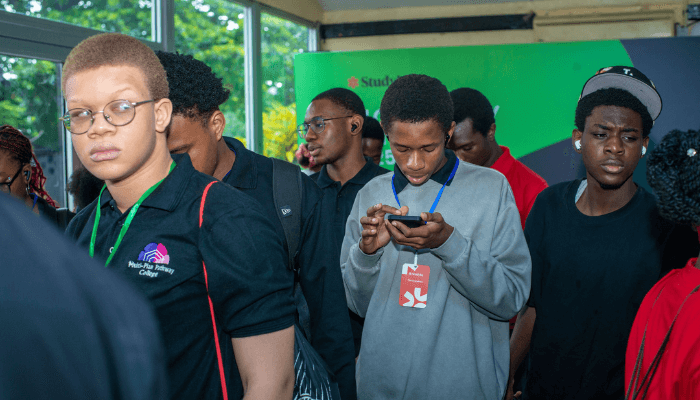Industry needs demand result-oriented degrees, experts urge
Experts are emphasising the urgent need for academic programmes to adapt to the evolving demands of the job market, advocating for result-oriented degrees that equip graduates with practical skills and industry-relevant knowledge.
They argue that bridging this gap is essential to addressing Nigeria’s youth unemployment and ensuring that graduates possess the skills relevant to today’s industries.
Olayinka David-West, dean of the Lagos Business School, represented by Henry Ogundolire, who spoke on “Degree with Direction”, at the 2025 Global Education Conference, held in Lagos, said a degree without direction is a journey without a map.

David-West explained that a degree gives a student little more insight into their direction if they are only curious and think about things a little more than ordinary students who believe a degree is all that is required to succeed in life.
Read also: Nigeria’s new hustle economy: When degrees meet the street
“So if you’re going to have degrees, you’re going to have a degree with direction which requires thinking.
“If you think critically about a course, that will definitely give you an understanding about your destination with clarity, courage, and purpose,” he said.
Besides, he emphasised that in the contemporary era, the most critical skill people need to pay attention to is learning.

“We live in an era where the correlation between education and opportunity is being redefined. This is the world of AI. Having a degree is certainly no longer the final destination. It’s just the foundation.
“What really matters is what you can do with what you know, so think about it this way, every course you study is not just about mastering content, it’s about building capabilities,” he noted.
Mary Agbu, the country director for StudyIn Nigeria, the organisers of the 2025 Global Education Conference, was predicated on giving students studying in international destinations and Nigerian universities support, and to bridge the knowledge gap, and help them become more purposeful and intentional in their study journey.
“Most students lack the skills employers are for, as entrepreneurs complain about skills mismatch in the workplace.
“Besides, students complain of not having a good forum where they can actually make inquiries, have somebody listen to them carefully and give them correct answers, and also bring up a platform for matching the two aspirational stakeholders,” she said.
Read also: Five degrees with the highest unemployment rates after graduation
Agbu called on all stakeholders to collaborate to change the whole concept of career, education, and to begin to embrace the concept of understanding what works for people.
We have a separate segment, which is on the other side, what we call the family, and we have quite a number, a total of 17 universities.
No fewer than 17 universities from across the world were on the ground to engage with parents and students on what it takes to study outside of Nigeria and especially in their institutions.
She emphasised that the engagement would be a deliberate one to expose potential students to the benefits and challenges ahead, and the career pathways that could help students achieve their aspirations.
“So, intentionality is actually the key factor of the kind of engagement we’re looking for with delegates.
“It’s no longer the old pattern where the degrees are crossing, the students haven’t even worked it down, haven’t asked very deep questions, hence, this time around, we’re actually pushing for ideal engagement,” she noted.
Zahra Parker, an infectious disease public health scientist, said bridging the gap between education and employability demands that students acquire some sort of experience in their career interest areas.
“As a student, you can go to school and have all the technical know-how, but you need to have practical experience that will make you attractive to an employer.
“The huge factor in bridging the gap is gaining hands-on and practical knowledge,” she said.

